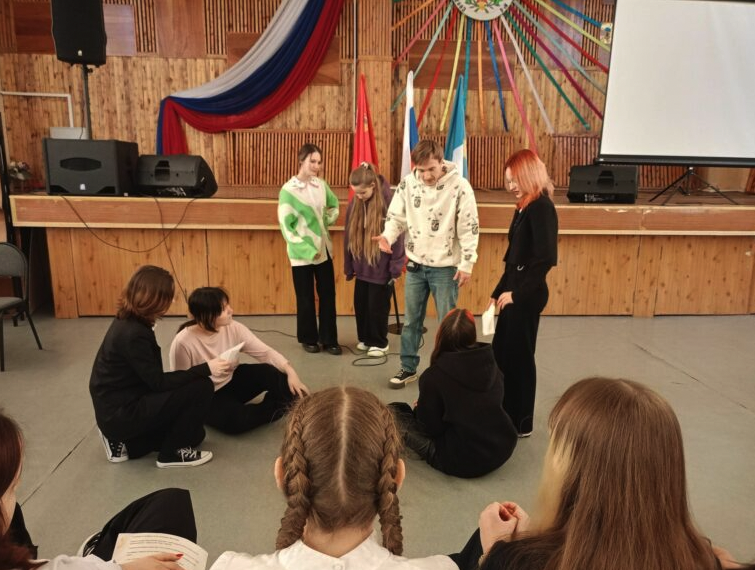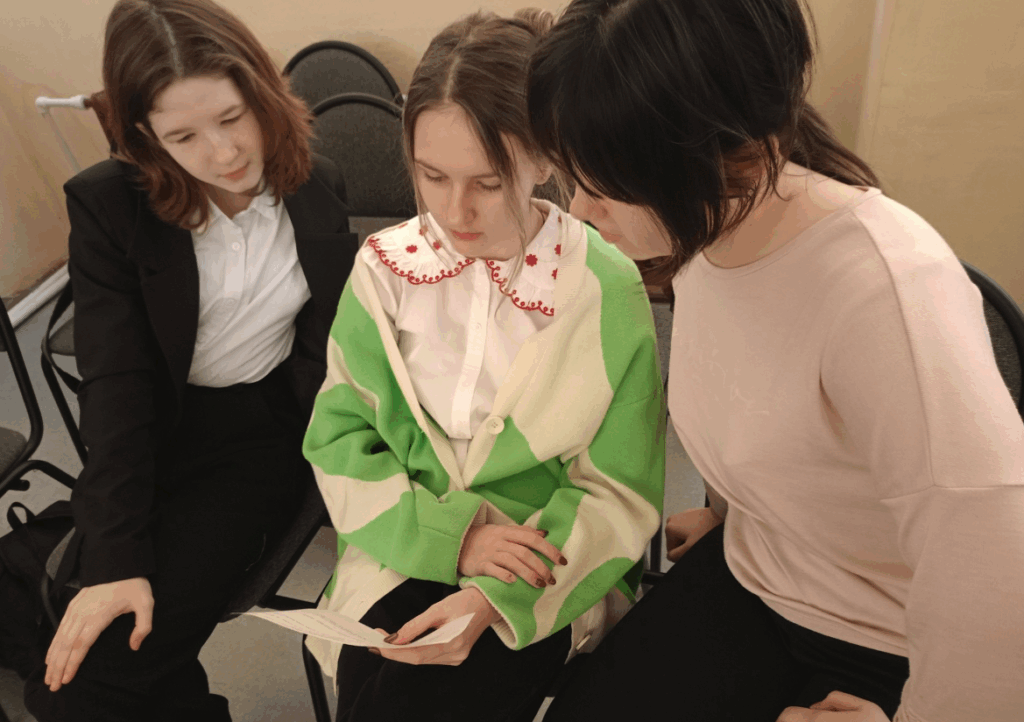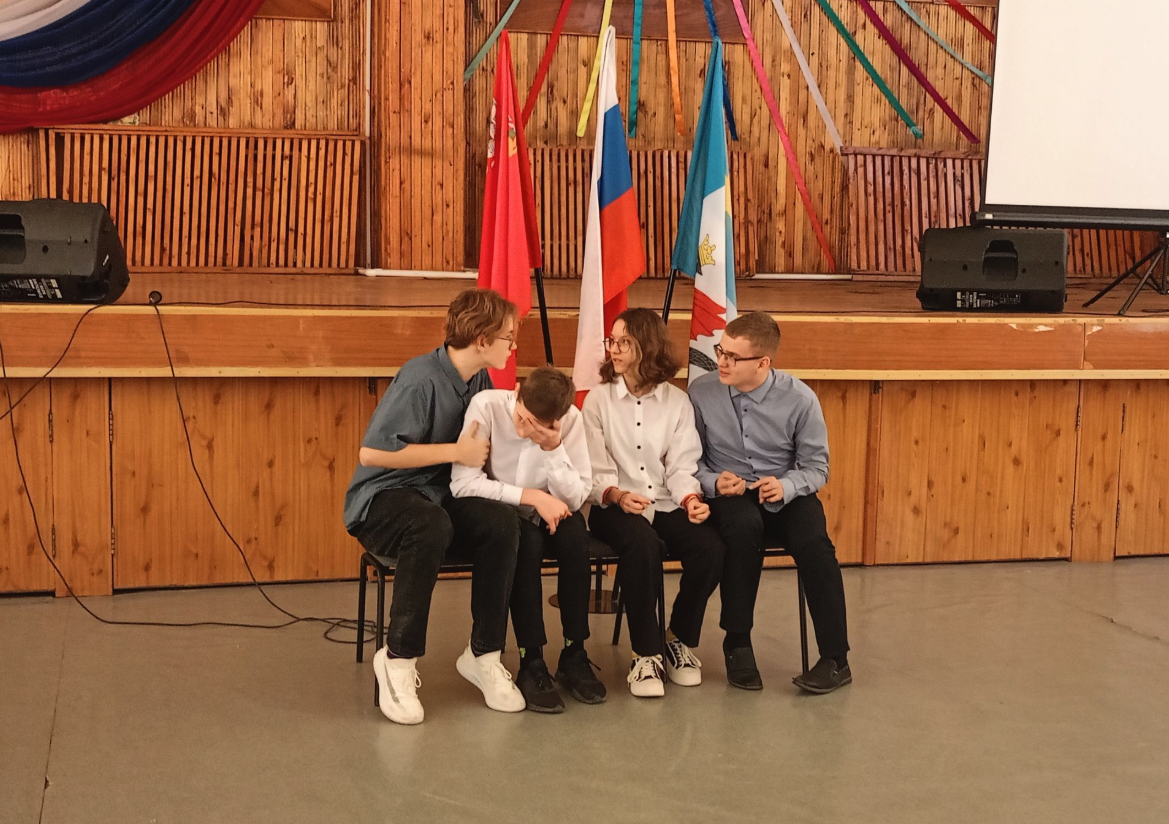Within the framework of the project “Developing a Technology for Overcoming the Risks of Adolescence: School Theatre Based on Role Experimentation” implemented at Secondary School No. 4 under the auspices of the Center for Interdisciplinary Research on Contemporary Childhood (MSUPE), a course in acting has begun.
Students of the 7th and 8th grades were introduced to the basics of the profession by theatre and film actor, teacher Alexey Nazarov. During the sessions, the students took part in training exercises aimed at developing effective communication in large and small groups, learning to collaborate with peers, as well as improving memory, attention, and sense of rhythm. They also practiced speech training and plastic improvisation. Such exercises are not only useful in preparing for the final performance but also in everyday life, including school life, since the ability to listen, understand, and accept others, along with clear and articulate speech, are essential conditions for building conflict-free relationships in a group.

The students particularly enjoyed game-based exercises designed to foster honest and trusting communication and adherence to interaction rules. One example was the game “The City Falls Asleep — The City Wakes Up.” Students closed their eyes, received roles, and acted according to the rules, with no one monitoring violations. Observation showed that the adolescents preferred to play honestly and not cheat, since it was precisely following the rules that made the game enjoyable for everyone. This activity can be seen as preventative: students stop perceiving rules as restrictions and instead gain a positive experience of following instructions.

Practical acting skills were developed through role experimentation. The 7th graders analyzed Mikhail Zoshchenko’s short story “Trouble.” They split into groups, distributed roles, and performed sketches. The students successfully conveyed the main character’s traits and experiences, and easily identified the central problem of the story — alcoholism destroys a person’s life. The 8th graders worked on the theme of the Great Patriotic War. Their assignment was to depict the behavior of adolescents after an air raid alarm. In small groups, they developed plots and, under Nazarov’s guidance, conveyed fear, confusion, and panic through speech, facial expressions, and movement, while also showing examples of mutual support and moral encouragement. The sketches varied widely in plot and expressive means.
For adolescents, acceptance and self-expression are very important, yet they do not always understand or know how to express their own emotions and feelings. Participation in acting classes helps them not only master new forms of activity but also learn to understand and accept their emotions, and to express them properly and without aggression.
Source — Secondary School No. 4


